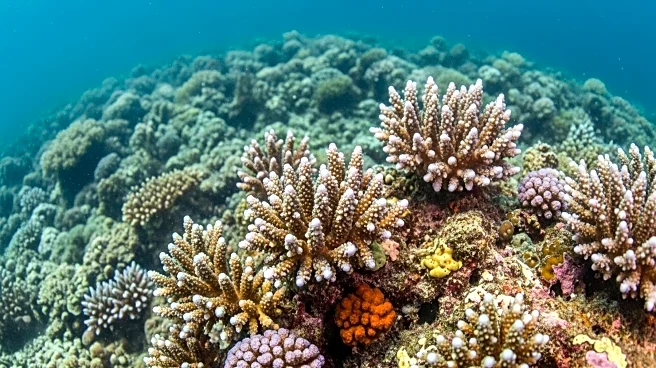What's Happening?
Scientists in the Bay Area are pioneering efforts to regenerate the world's second-largest coral reef, which is suffering from the adverse effects of climate change. The initiative involves creating baby corals, a method aimed at restoring the reef's health and biodiversity. Coral reefs are vital ecosystems that support marine life and protect coastlines, but they are increasingly threatened by rising ocean temperatures and acidification. This project represents a significant step in marine conservation, utilizing scientific innovation to address environmental challenges.
Why It's Important?
Coral reefs are crucial for maintaining marine biodiversity and supporting fisheries that millions of people rely on for food and income. The degradation of these ecosystems due to climate change poses a threat to global food security and coastal protection. By developing methods to regenerate coral reefs, scientists are contributing to the preservation of marine life and the mitigation of climate change impacts. This initiative could serve as a model for similar conservation efforts worldwide, highlighting the importance of scientific research in environmental sustainability.
What's Next?
The success of this coral regeneration project could lead to expanded efforts in other regions facing similar environmental challenges. Continued research and development in coral restoration techniques may attract funding and support from governments and environmental organizations. Stakeholders, including policymakers and conservationists, are likely to monitor the project's progress and consider its implications for broader climate change mitigation strategies.
Beyond the Headlines
This initiative raises ethical considerations regarding human intervention in natural ecosystems. While the project aims to restore coral reefs, it also prompts discussions about the balance between conservation and the potential impacts of artificial methods on marine life. Long-term monitoring will be essential to ensure that the regenerated reefs integrate successfully into their natural environments without unintended consequences.









